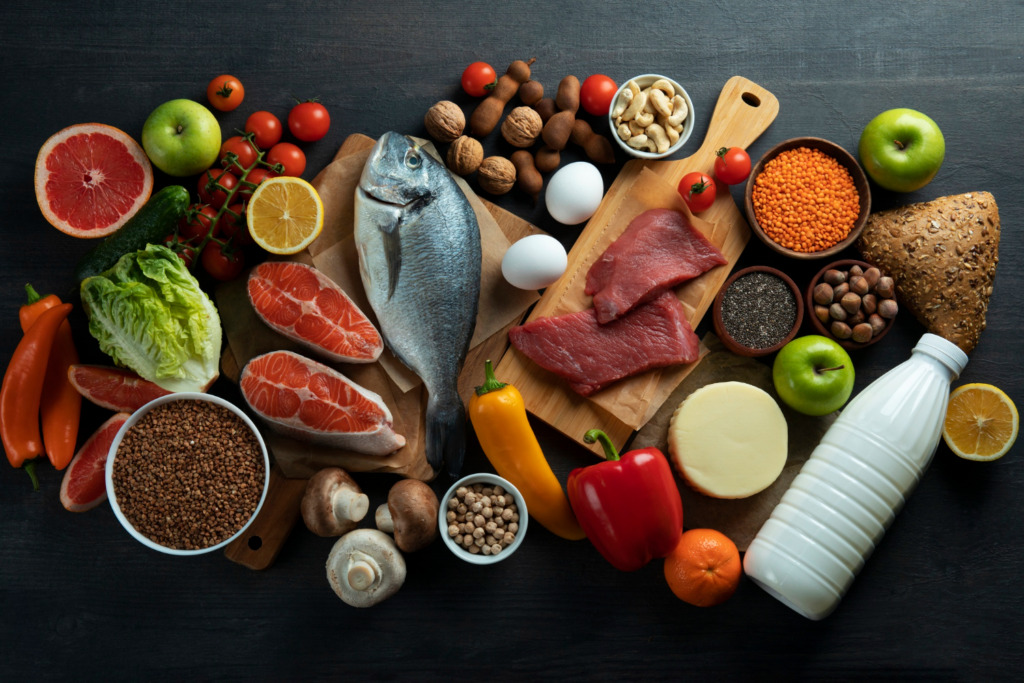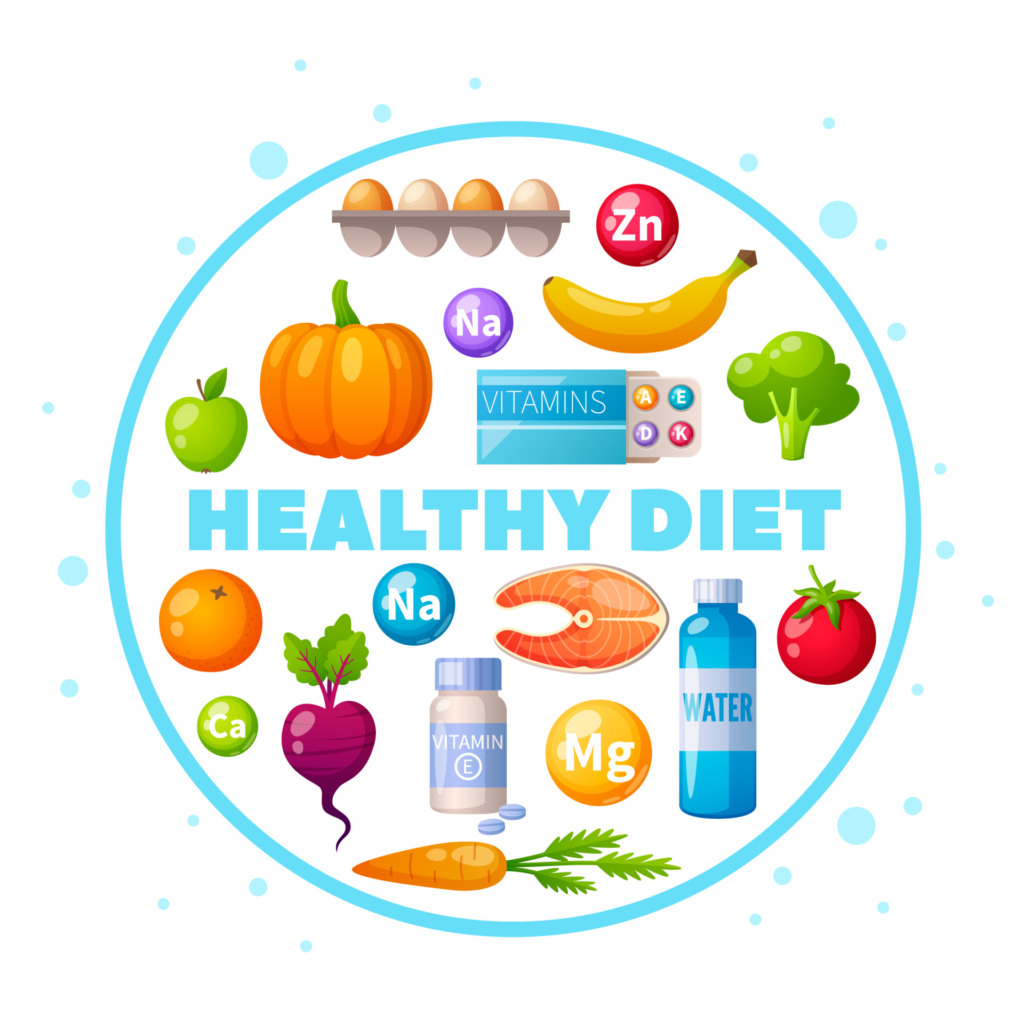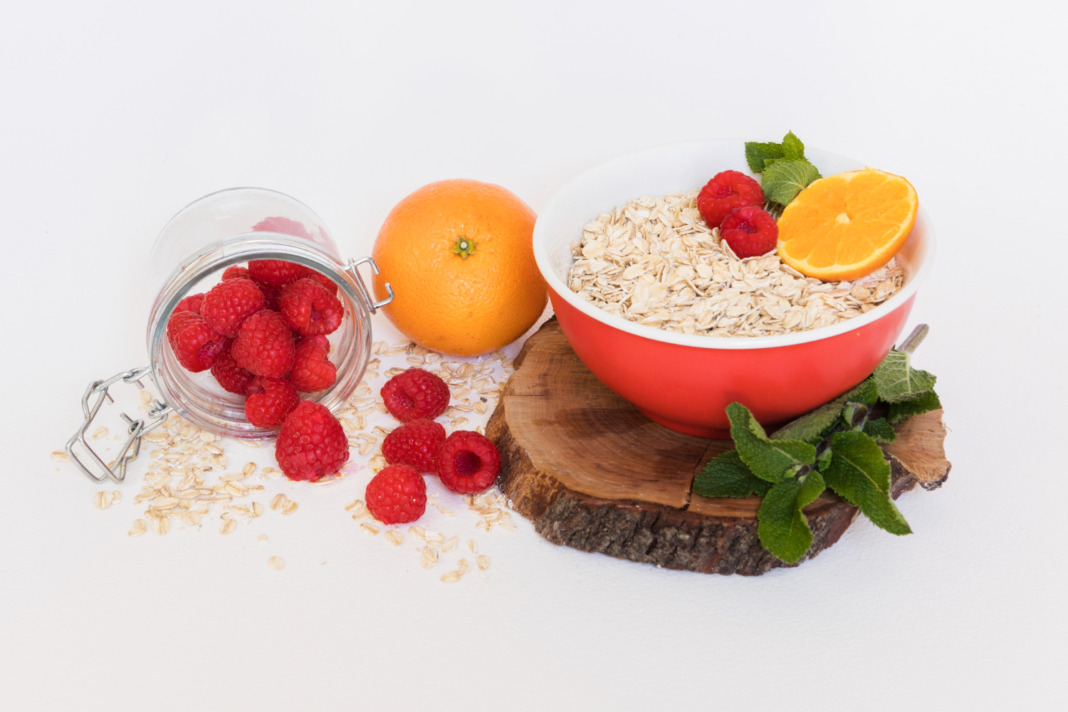Maintaining a diabetic diet requires close attention to nutrition. It is essential to comprehend how food affects blood sugar levels in order to manage this condition effectively. Controlling blood sugar levels is crucial for diabetics. High-protein, low-sugar foods like avocados and fatty fish are among the best food for diabetics patients. In this article, we are going to explore the best foods for diabetic patients.
An Understanding Of Diet And Diabetes
Diabetes has an impact on the body’s glucose metabolism. The key to controlling blood sugar levels and reducing complications is diet. If you have diabetes, you are aware of the challenges in controlling your blood sugar levels and diet. While some foods and beverages can help control blood sugar levels, others can cause large spikes; however, many people have to go through years of trial and error before they find what works best for them. Even though maintaining a healthy diet is important, diabetics might be more adaptable than they realize.
Take into consideration our top best food for diabetics patients and how to lower blood sugar in order to create a diabetes diet that maximizes blood sugar regulation.
Controlling Blood Sugar Levels
A diabetic patient’s health can be greatly improved by a well-managed diet because it can stabilize blood sugar levels and enhance general wellbeing. Consuming carbohydrates is important for diabetics because they have a major impact on blood sugar levels. Different carbs have varying effects on blood sugar. Having a thorough understanding of the glycemic index facilitates wise food selection.
Best Foods For Diabetic Patients
1. Green, Leafy Vegetables
One important plant-based source of calcium, vitamin A, and potassium is green, leafy vegetables. They also supply fiber and protein. Some have discovered that the high antioxidant and fiber content of green, leafy vegetables can help those who have diabetes. Among the green, leafy vegetables are collard greens, spinach, Lettuce, Celery, kale, broccoli and bok choy.
In individuals with subclinical hypertension, kale juice may help control blood sugar levels and raise blood pressure.
2. Chia Seeds
They have a very high fiber content and a low digestible carb content. Chia seeds are an excellent dietary supplement for diabetics. Because it slows down the speed at which food passes through your gut and is absorbed, the viscous fiber in chia seeds can actually lower your blood sugar levels.
The fiber in chia seeds helps you feel full and decreases hunger, which may help you reach a moderate weight. Chia seeds may also support diabetics’ ability to control their blood sugar levels. Chia seeds have also been demonstrated to help lower inflammatory markers and blood pressure.
3. Fatty Fish
Fatty fish is one of the best foods to help you stay healthy, even if you don’t have diabetes. Fatty fish can help you control your blood sugar and offer several other health benefits in addition to a decreased risk of diabetes. You can get a substantial amount of the omega-3 fatty acids DHA and EPA from fatty fish, such as salmon and anchovies. These fatty acids can help shield your heart from potential complications resulting from diabetes. After consumption, DHA and EPA also lessen inflammation, safeguard your blood vessels, and enhance artery function. Salmon, mackerel, sardines, albacore tuna, herring, and trout are a few fish that are high in fat.
4. Cinnamon And Turmeric
Spices are extremely useful tools, particularly for managing diabetes. To reap the greatest benefits, include both turmeric and cinnamon in your diet on a daily basis. Following a few easy steps will make this happen. It has been demonstrated that cinnamon lowers A1C levels and enhances insulin sensitivity and blood sugar levels.
In addition, turmeric helps control blood sugar, lowers inflammation, lowers the risk of heart disease, and is good for the kidneys. Just be sure to combine your turmeric with black pepper to release curcumin, which is a healthy component.

5. Greek Yogurt
A daily serving of yogurt has been associated in studies with an 18% decreased risk of type 2 diabetes. According to studies, persons with type 2 diabetes who eat yogurt and other dairy products may lose weight and have a better body composition.
Greek yogurt has fewer carbohydrates per serving than regular yogurt—about 6-7 grams per serving. Additionally, it has more protein, which may help with weight loss by lowering appetite and subsequently calorie intake.
6. Eggs
Egg consumption on a regular basis may lower your risk of heart disease in a number of ways.
Eggs have been shown to reduce inflammation, enhance insulin sensitivity, raise HDL (good) cholesterol, and change the form and size of LDL (bad) cholesterol.
According to a 2019 study, having eggs for breakfast—a high-fat, low-carb meal—may help diabetics better control their blood sugar levels throughout the day. According to another study, eating eggs may lower your chance of having a stroke.
7. Beans
Beans are a great choice for those who have diabetes. Because of their high soluble fiber content, they can help promote digestive health and satisfy appetites. They are also a source of plant-based protein. Important nutrients like iron, potassium, and magnesium are also found in beans. Kidney, pinto, black, navy, and adzuki beans are just a few of the numerous varieties.
8. Apricots
Apricots have a mild flavor and are sweet. They are beneficial to include in a diabetic diet due to their wide range of nutrients. Because of their low glycemic index, apricots can help you indulge your sweet tooth without having to worry about raising your blood sugar levels. In moderation, dried apricots also make a fantastic substitute.
9. Chili Peppers
Since thousands of years ago, people have been growing capsicum for use as food, medicine, and decoration. The ability of chili peppers to activate the transient vanillin receptor accounts for their medicinal effectiveness. This receptor is linked to anxiety, neuropathic and inflammatory pain, and the body’s metabolism of fats. It is also a crucial regulator of insulin. As a result of this research, extracts targeting pharmacological approaches to treat diseases like diabetes have been produced.
10. Cinnamon
The health advantages of this amazing spice may surprise you, even though many of us add it to our morning beverages. In addition to increasing good cholesterol and decreasing bad cholesterol, cinnamon has been shown to decrease blood sugar levels.
11. Garlic
Bad breath is one of the main reasons why many people avoid eating garlic. On the other hand, it is well known that garlic extract makes more insulin available to diabetics. Thus, it has been demonstrated to lower blood sugar levels.
Healthy Snacking
Snacking wisely can support stable blood sugar levels all day long. Nuts, seeds, and Greek yogurt are wholesome snack choices that help to maintain blood sugar stability.
Portion Control
Maintaining a healthy weight and managing blood sugar levels require careful consideration of portion sizes. For those with diabetes, knowing the right portion sizes guarantees controlled carbohydrate intake.

Hydration And Diabetes
To support numerous body functions and maintain optimal health, diabetic patients must drink enough water.Water consumption improves kidney function and blood sugar regulation in diabetics.
Exercise And Nutrition Together
Effective diabetes management requires regular exercise in addition to a nutritious diet. Being physically active increases insulin sensitivity, which aids in blood sugar regulation.
Conclusion
In addition to rapidly lowering blood sugar, foods also provide the body with additional health benefits, such as enhancing immunity, restoring damaged cells, and preventing the majority of lifestyle diseases. That being said, this is not a comprehensive list of foods that can be consumed to regulate blood sugar levels. This is a list of low-GI foods that are readily available in your area and that you may want to take into account when controlling your body’s blood sugar levels. In order to determine the best course of action for treating the extremely high blood sugar, patients should consult with their family physicians, a dietitian, and a clinical nutritionist.
FAQs
- Is fruit safe for a diabetics to eat?
Yes, but it’s best to choose fruits like berries, apples, and citrus fruits in moderation as they have a lower sugar content.
- Do all carbs cause harm to people with diabetes?
No, not every carb is harmful. Because they have less of an effect on blood sugar, whole grains, legumes, and non-starchy vegetables may be better choices for diabetics.
- Should a diabetic’s diet include protein?
Indeed, for a balanced diabetic diet, lean protein sources like skinless chicken, fish, tofu, and legumes are essential.
- How much water should people with diabetes consume?
Maintaining proper hydration is crucial. It is generally advised to consume 8–10 cups (64–80 ounces) of water each day.
- Can diabetes be managed with exercise?
Indeed, regular exercise helps control blood sugar levels and enhances insulin sensitivity, making it a crucial component of diabetes care.
- Can people with diabetes occasionally indulge in treats?
Yes, but the key is moderation. Choose modest serving sizes and counterbalance them with wholesome food selections.
- Is it advisable for diabetic patients to use artificial sweeteners?
They can be, but in order to assess their suitability in light of specific medical conditions, it’s best to speak with a healthcare provider.
- Can people with diabetes drink alcohol?
Moderately and cautiously, but it’s important to keep an eye on blood sugar levels and see a physician for professional advice.
9. Is there a one-size-fits-all diet for diabetics?
No, each person has different dietary needs. It’s critical to work with a healthcare professional to customize the diet.



